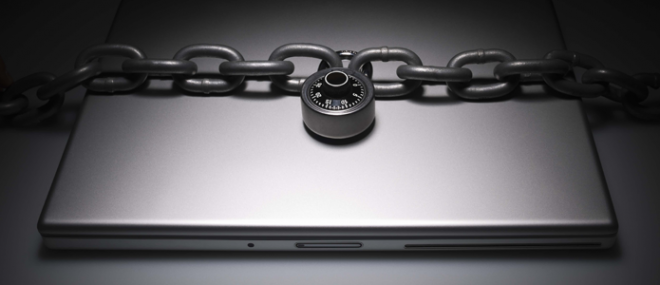Like many businesses, yours may rely on the use of a company vehicle or vehicles for day-to-day operations. And like all aspects of your business, this can present new risks for you to manage and prepare for. Did you know that certain cars have a higher likelihood of being stolen? Some are also much more expensive to repair should an accident occur. Make sure to do your research prior to purchasing any new vehicles to avoid unnecessary costs.
Every year, the Insurance Bureau of Canada (IBC) releases a list detailing the vehicles that were most frequently stolen in Canada. 2016 marked the second year in a row that saw an overall increase in automotive theft throughout the country with Ford pick-up trucks leading the way. In a press release about the report, IBC’s National Director of Investigative Services Gary Robertson said, “After large declines in auto theft activity over the last decade, the number of vehicles stolen has gone up 6% from last year to 78,849 across Canada.” The largest increases were seen in Alberta and PEI, which saw overall increases of 32% and 19% respectively.
The IBC released top 10 lists for Canada nationally, Ontario, Quebec, the Western provinces and the Atlantic provinces. You can review some of the IBC lists below.
National Top 10 Most Frequently Stolen Vehicles
- Ford F-350 Super Duty 4WD Pickup
- 2006 Ford F-350 Super Duty 4WD Pickup
- 2005 Ford F-350 Super Duty 4WD Pickup
- 2004 Ford F-350 Super Duty 4WD Pickup
- 2003 Ford F-350 Super Duty 4WD Pickup
- 2015 Toyota 4Runner 4-door 4WD SUV
- 2003 Cadillac Escalade 4-door 4WD SUV
- 2002 Ford F-350 Super Duty 4WD Pickup
- 2006 Ford F-250 Super Duty 4WD Pickup
- 2010 Acura ZDX 4-door AWD SUV
Ontario Top 10 Most Frequently Stolen Vehicles
- 2015 Toyota 4Runner 4-door 4WD SUV
- 2014 Toyota 4Runner 4-door 4WD SUV
- 2003 Hummer H2 4-door AWD SUV
- 2003 Chevrolet Tahoe 4WD and 2003 GMC Yukon 4WD SUVs
- 2015 Lexus RX350/RX450h 4-door AWD SUVs
- 2002 Cadillac Escalade 4-door 4WD SUV
- 2015 Acura MDX 4-door 4WD SUV
- 2011 Range Rover Sport 4-door 4WD SUV
- 2004 Chevrolet Tahoe 4WD and 2004 GMC Yukon 4WD SUVs
- 2005 Chevrolet Suburban 4WD and 2005 GMC Yukon XL 1500 4WD SUVs
Western Top 10 Most Frequently Stolen Vehicles
- 2006 Ford F-350 Super Duty 4WD Pickup
- 2007 Ford F-350 Super Duty 4WD Pickup
- 2005 Ford F-350 Super Duty 4WD Pickup
- 2005 Ford F-250 Super Duty 4WD Pickup
- 2003 Ford F-250 Super Duty 4WD Pickup
- 2007 Ford F-250 Super Duty 4WD Pickup
- 2006 Ford F-250 Super Duty 4WD Pickup
- 2004 Ford F-350 Super Duty 4WD Pickup
- 2003 Ford F-350 Super Duty 4WD Pickup
- 2002 Ford F-250 Super Duty 4WD Pickup
While these vehicles may have been targeted most, the threat of auto theft is always something Canadian car owners should be warry of regardless of the model they own. The IBC encourages Canadian car owners to be vigilant in protecting themselves against car theft, including by following these tips:
- Never leave your car running and unattended.
- Always make sure you’re parking your vehicle in well-lit areas.
- Ensure all your windows are rolled-up and all your doors are locked before leaving your vehicle.
- Never leave valuables visible in your vehicle. Keep them hidden in the trunk or glove compartment.
- If possible, park your vehicle in a garage at night.
What does this mean for auto insurance?
What some Canadians may not realize is that the likelihood of your vehicle being stolen is a factor often used to determine your auto insurance rates and premiums. If you’re looking to purchase a new company vehicle this year, you may want to consider avoiding the ones on these lists as it may increase your insurance rates. The repair costs for certain vehicles can be higher than others as well. This can also result in a higher insurance rate. Some car manufacturers need to order parts from overseas when repairing your car after an accident, which could mean it will take longer to get them back on the road. All of these factors could affect your company’s bottom line.
If you’re currently in the process of purchasing a new company vehicle or vehicles, consider consulting the Canadian Loss Experience Automobile Rating (CLEAR) page. The CLEAR system was developed to provide consumers with accurate and credible assessments of the expected and actual claims loss experience information for each make, model and year of private passenger vehicles. CLEAR uses real claims data from across Canada and the United States to determine the claims risk rate of each vehicle; a lower risk rate will likely result in a lower insurance rate. It has become an extremely useful resource for Canadians shopping around for a new or used vehicle.




